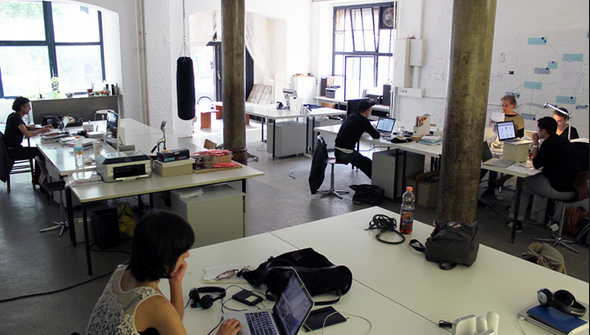Arts organizations spend a considerable amount of time discussing how to attract the millennial audience. Equally significant is how to attract the millennial employee. Attracting digital natives to any aspect of your organization requires understanding their assumptions for connectivity. A recent survey sponsored by DOMO and CEO.com proves what one might guess from observation – digital natives expect “a mobile-first workplace” (https://www.domo.com/news/press/tomorrows-workers-want-mobile-but-are-employers-ready).
Surveying 2000 college students, the study notes that the vast majority of students (89%) turn to some mobile for the majority of their internet access:“46 percent via a mobile phone and 43 percent on a tablet or laptop.”
While only 67% of the US population use smartphones, they are more prevalent in younger generations. Of those surveyed, “96% use them [mobile phones] to access the Internet, and 68% turn to a mobile device to stream music and send or receive pictures.”
Thinking 5 years into the future and the entry of Generation Z into the workplace, it seems they are even more connected with 92% going online daily. (http://www.pewinternet.org/2015/04/09/teens-social-media-technology-2015/)
While this data is not a surprise, what organizations need to recognize is a changing wave of how employees think about work. BYOD (Bring Your Own Device) culture is assumed, bringing with it a myriad of issues with respect to access, privacy, and data protection. BYOD policies are rarely found in an arts organization but should be quickly added. For a quick primer, check CIO.com’s article on the subject (http://www.cio.com/article/2386235/byod/how-to-craft-the-best-byod-policy.html). Furthermore, a ‘desk’ is not required for work nor is it, necessarily, perceived as a space conducive to productivity. Laptops over desktops will be expected and workspace will need to be reconsidered. The cubicles of the past are better redesigned to open plans with comfortable space (perhaps couches) for individual work or small group meetings.
If you want to attract the best and the brightest in upcoming generations, be prepared for a new style of worker and a new style of work.
For those interested in understanding the millennial generation further, check out this 2014 study from the Pew Research Center (http://www.pewsocialtrends.org/2014/03/07/millennials-in-adulthood/).


